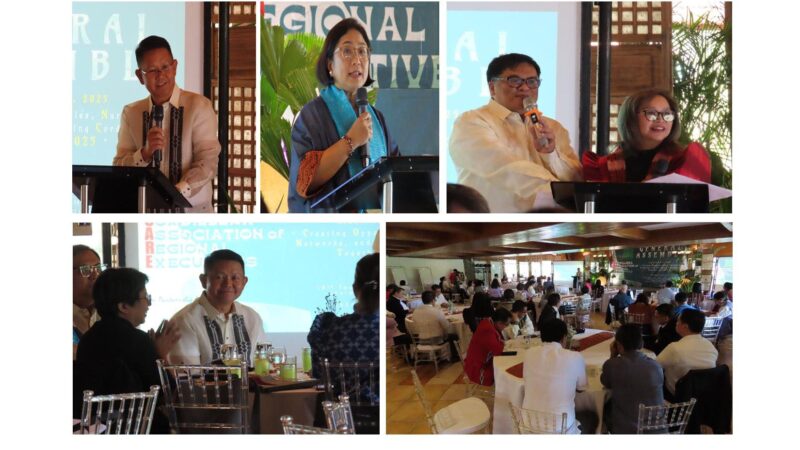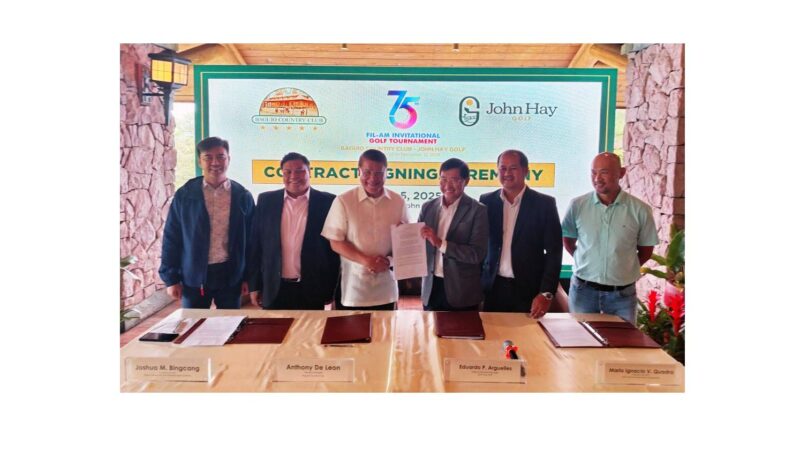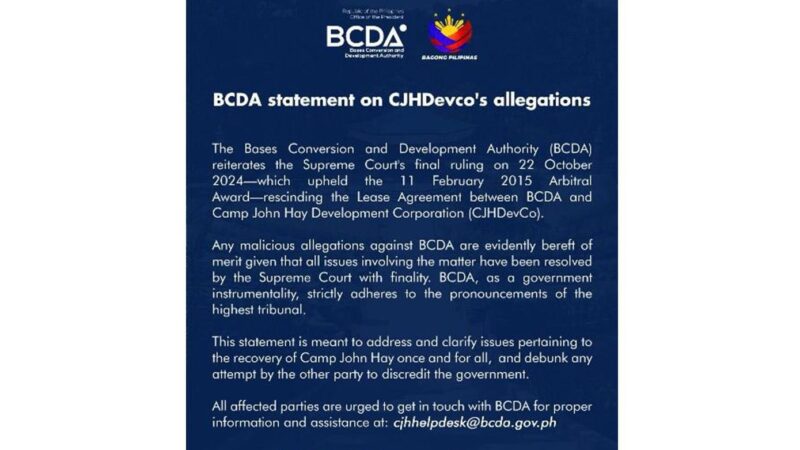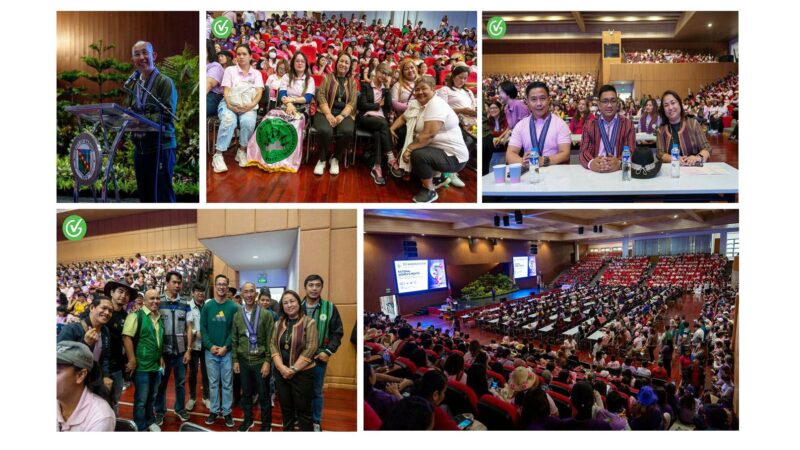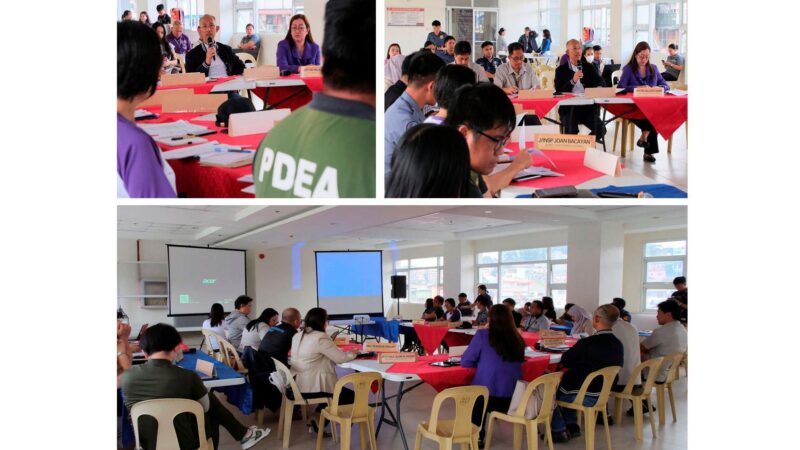Three-Year action plan for City’s sustainable tourism bared
City Tourism Officer Aloysius Mapalo presented to the city officials a three-year action plan that would help the city government achieve its targets on sustainable and responsible tourism.
According to Mapalo, Baguio City as a tourist destination is envisioned to be a model mountain resort attraction. He said it aspires to be a model for other local government units advocating for responsible and sustainable tourism practices and programs, ensuring inclusive and equitable benefits for tourism stakeholders and the local community.
The three-year action plan is anchored on a strategic framework that has three pillars namely environmental sustainability, socio-cultural sustainability, and economic sustainability.
From this strategic framework, three major strategic goals have also been identified.
The first strategic goal is the development of concerned organizations and institutions with defined regulations, procedures, and standards. This includes the restructuring of the City Tourism Office complemented with staff and frontliners capacity building and development.
Under the proposed restructuring of the City Tourism Office, five divisions shall be created. These are a) Tourism Product Development, Promotions, and Marketing; b) Heritage, Culture, and Arts Preservation and Promotion; c) Tourism Statistics, Research, Planning, Regulations, and Standards; d) Administrative, International Affairs, and Protocols; and e) Baguio City Convention and Cultural Center Management, Operations, and Maintenance.
Also included in this first strategic goal are the strengthening of the said office and the Baguio Tourism Council and the fortification of the city’s tourism regulations, procedures, and standards.
Mapalo said the Baguio City Council can help achieve the fortification of these tourism regulations, procedures, and standards by reviewing and amending the 2009 Baguio Tourism Code and by enacting ordinances on the imposition of visitors fees, environmental fees, and congestion fees.
More laws that need to be enacted, according to Mapalo, are on equity and standardization of tourism products and services; on the incentivization of tourism investments; and on the adherence to sustainable tourism practices.
The second strategic goal is the enhancement of tourism products and experiences with targeted marketing promotions. This is to elevate the target market which is the lower-income market.
Mapalo said the focus now is to produce low-density but high-value marketing and promotion strategies.
Under this goal, he highlighted six ethical considerations culled from the Tourism Guidebook for Local Government Units. These are a) festivals should be based on heritage e.g. historical facts, b) unique cultural features; c) souvenir products should not destroy the biodiversity and the geological features of the place; d) decent and sensitive portrayal of women and sensitive references to Indigenous Peoples traditions and cultures; e) historical buildings should be preserved, and restoration of buildings must be authentic; and f) food served must be sourced locally using local cuisine.
The third strategic goal is the improvement of tourism services facilities driven by innovation and creativity. The City Tourism Office plans to offer complete visitors service centers and tools, effective tourist transport and mobility services and tools, and adaptive and integrated programs for tourism products and services focusing on health, sanitation, safety and security, and disaster risk reduction management.
Expanding on the city’s new destination brand #BreatheBaguio, Mapalo introduced three product development thrusts that are also in hashtag format. These are #BreatheWellness, #BreatheCulture, and #BreatheNature.
A tourism program will be developed to promote wellness, culture, and nature.
One feature of this program is Educational Tourism and Meetings, Incentives, Conferences & Exhibitions (MICE). This will offer cultural orientation and education for all tourists and new students in the city as well as promote the Baguio City Convention and Cultural Center as a MICE facility and cultural/creative hub. Included in this feature is the provision of assistance in the development and promotion of cultural
and historical museums and the development of an educational history tour circuit package.
Another feature is Ecological and Agri Tourism. Among the proposed and ongoing projects under this are a) Pine Trees of the Word as a major eco-park attraction; b) Irisan Dumpsite as a model for converted ecopark; c) regreening and installations of flower gardens in parks, alleys, road center islands, overpasses, and in barangays; development of urban agricultural sites and farm circuit tours; and the Country Club, Happy Hollow, Atok Trail, Lucnab, Outlook, and Kias (CHALOK) Ecopark Communities.
The third feature is Sports, Health, and Wellness Tourism with an end goal of developing and promoting attractions and activities for athletic run/walk trails, leisure and recreation parks facilities focused on wellness and rejuvenation, and forest bathing areas. With this feature, Baguio City shall be the venue of various sports conventions and tournaments with an emphasis on sports events that can be unique to Baguio City. To make these plans possible, the city government shall fast-track the completion of the improvement of the Baguio Athletic Bowl and other city sports facilities and shall create mobility provisions for cycling and walking.
The last feature is Cultural, Religious, and Creative Tourism. Proposed projects to realize this action plan are the creation and promotion of Heritage and Cultural Circuit Tours; establishment and promotion of local crafts hubs as experiential and immersion attractions; rehabilitation of the Maharlika Livelihood Center as a creative crafts and folk arts center; rehabilitation of the Post Office Building as a media arts and cultural museum; development of the Dominican Heritage Hill as a heritage and creative showcase hub; and long-term planning for Session Road and peripherals as an urban heritage tourism zone.
Mapalo said the three-year action plan shall help the city sustain Baguio’s reputation as “home to diverse and dynamic cultures, center for education, trade and tourism in harmony with nature managed by God-loving steadfast leaders in partnership with responsible and peace-loving citizenry.” –Jordan G. Habbiling



